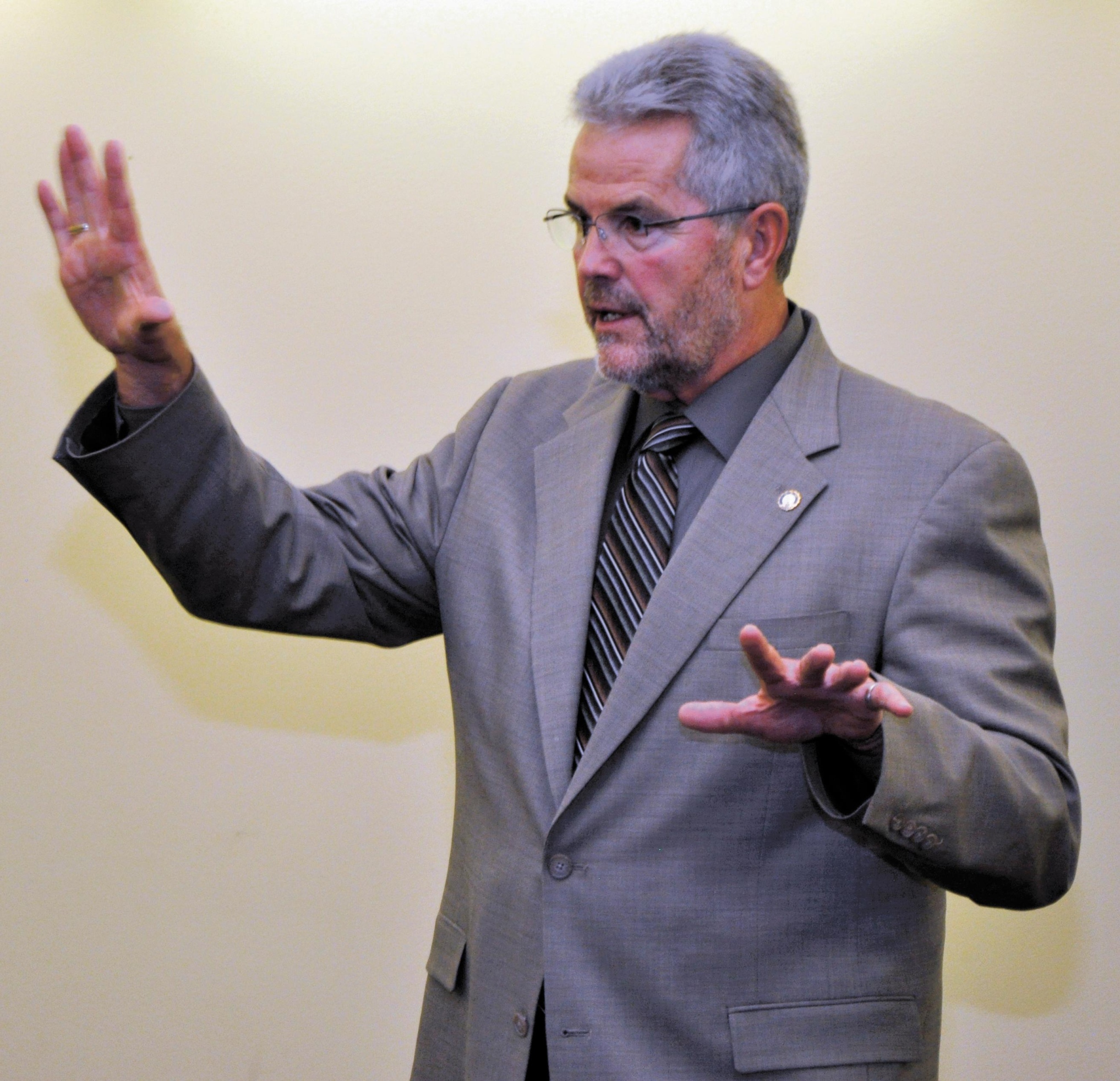Union leader encourages students to think positively
Ted Jensen flicked his thumb, sending a coin spinning to the ground, and showed a group of students in the Alumni House that compatibilities are like two sides of a coin.
He said no one knows exactly what the outcome of their lives will be, but no progression can be made if individuals consistently say no to opportunities that come their way.
“You are at the sunrise of your life,” said Jensen, the eighth district international vice president for the International Brotherhood of Electrical Workers. “At the start of your life it’s the worst of times … you have to look at sunset as an opportunity and a beginning. What do you have to lose?”
Jensen said students should consider their attitudes toward the future and he presented contrasting approaches they might use when dealing with difficult life situations. After gaining many life experiences while traveling down six career paths, Jensen said students should never walk away from opportunities for fear of failure.
IBEW, where Jensen is employed, is currently the largest union in the U.S. with 725,000 workers, according to its official website. Though he said he enjoys his job, working for a union of electricians was not a part of his original plans. He first attended USU on a music scholarship for one semester and after transferring began studying political science.
“None of my career choices had to do with me thinking about where I wanted to be,” Jensen said. “I just kind of stumbled into them. Sometimes people ask me if I felt qualified when I took a job. I would say yes, but the answer is no. It’s always an experiment.”
Craig Whyte, the Student Alumni Association adviser, invited Jensen to campus, and added to the advice Jensen gave students.
“There is always going to be an obstacle,” Whyte said. “But one day you are going to wake up and be presented with three or four of the best options you could have. You suddenly have to think, ‘What is the best option for me?’ At USU you are lucky. You have professors and advisers, and their only purpose is to help you succeed. They are there for you.”
Some students asked questions seeking advice for their own academic and career paths. A few students shared learned attitudes that have made them successful.
“I think good actions lead to accomplishments,” said Caleb Gorringe, a senior majoring in economics. “It’s the root of the accomplishment.”
Jensen nodded after Gorringe’s comment and used former Penn State football coach Joe Paterno as an example of a person who accomplished many things, but most will remember him for one action.
Paterno was recently fired as head coach for failing to report sexual misconduct by the team’s defensive coordinator Jerry Sandusky. One poor decision will affect the rest of Paterno’s life, Jensen said, which is why choosing actions wisely will always be more important than tallying the most accomplishments.
Another comparison Jensen made was between satisfaction and joy, asking students which feeling they would rather have.
“If I was satisfied, then I did something good,” Whyte said, “but I didn’t do it to the best of my ability.”
Elements of joy come from unique daily experiences, Jensen said, not the daily grind. He said students must find time for themselves now — doing things they enjoy — or they will never find the time. Life is a series of patterns, he said, which must be broken occasionally to find joy.
Ultimately, all the comparisons Jensen made were meant to remind students their lives are contingent upon the choices they make, but not every choice needs to be permanent, Jensen said. If one thing doesn’t work out, there is still time to find more compatible fits.
“What I’m asking you to do is keep yourselves open to possibilities,” Jensen said, “Now, you don’t have a clue where these possibilities will come from. But if you jump into one of those opportunities, it will unfold for you.”
– catherine.meidell@aggiemail.usu.edu

